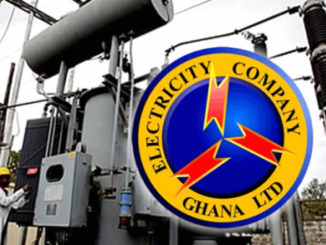 The World Bank has called for urgent reforms in the energy sector to save the sector from collapse, the Ghanaian Times reports.
The World Bank has called for urgent reforms in the energy sector to save the sector from collapse, the Ghanaian Times reports.
It said there was the need for an Emergency Action Plan (EAP) to address the distribution and financial losses confronting the sector.
The Managing Director of the World Bank in charge of Operations, Anna Bjerde, who made the call at a news conference on Friday to round up her four-day visit to Ghana, in response to a question on reforms being proposed by the World Bank to revamp the country’s energy sector which is saddled with debt, acknowledged that the energy sector reforms would be difficult but was necessary to position the country for “strong growth”.
She said the financial performance of the energy sector for the past few years had deteriorated.
“The distribution and financial loss confronting the energy sector if not arrested and addressed with an EAP would continue to worsen and cost the country more to keep the energy sector running at the time when the government needs money to do other things,” she stated.
The government currently owed Independent Power Producers (IPPs) more than $1 billion and the IPPs recently threatened to shut down their plants if government did not pay debts owed them.
She said the World Bank was providing technical advice to the government on proper billing and metering to ensure the sector raised the necessary revenue to cover cost to ensure energy supply was not disrupted.
According to her, billing and collection was depended on proper metering, stressing that the country needed billing, metering and collection that “function well.”
“These are your basic parameters to be able to bill and collect properly,” Ms Bjerde stated, emphasising that “energy lost should be an energy that is consumed and paid for.”
Ms Bjerde said most of the cost in the energy sector was not on the front end of the distribution, but rather at the generation side and said the government needed to raise revenue to pay the IPPs to ensure constant power supply to spur economic growth.
She said disruptions in power supply would affect businesses and thereby thwart the economic growth of the country.
Ms Bjerde also advised on the structure and said regulatory issues is needed to fix the energy sector challenges and there would be the need to invite private sector participation in the country’s energy sector.
The Managing Director in charge of Operations said the World Bank was committed to support Ghana to help the country to address the economic challenges it was going through.
“The World Bank is a long standing part of Ghana and will stand by the country in this difficult period,” she stated.
The World Bank Country Director in charge of Ghana, Liberia and Sierra Leone, Mr Pierre Laporte, said the World Bank’s current portfolio for Ghana stood at $3.6 billion.
He said the World Bank was negotiating with the government to support the country with $900 million in the next three years to address the economic challenges facing the country.
Mr Laporte said the first tranche of $300 million would be disturbed before the end of the year.
Mr Laporte said the World Bank would also release $250 million before the end of the year to support the Ghana Financial Stability Fund to support banks as part of the debt restructuring exercise.
Ghanaians are already witnessing the rise of Dumsor again which is coupled with the low economic activities. Some parts of the capital, Accra have started experiencing load shedding regimes orchestrated by the ECG.
–
Ghanamatters.com


